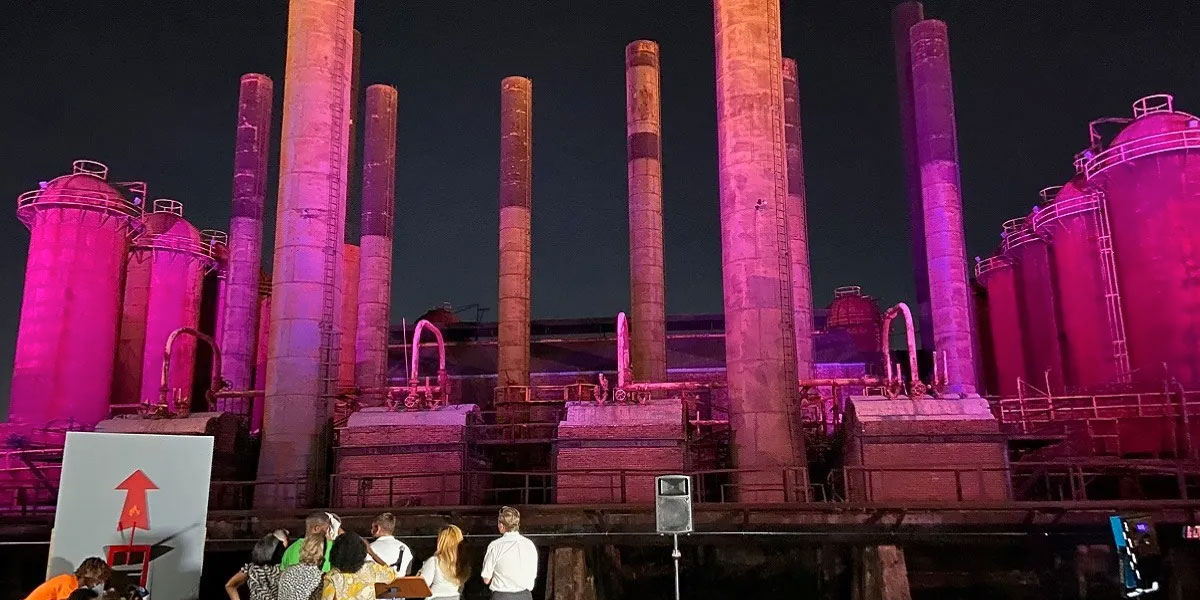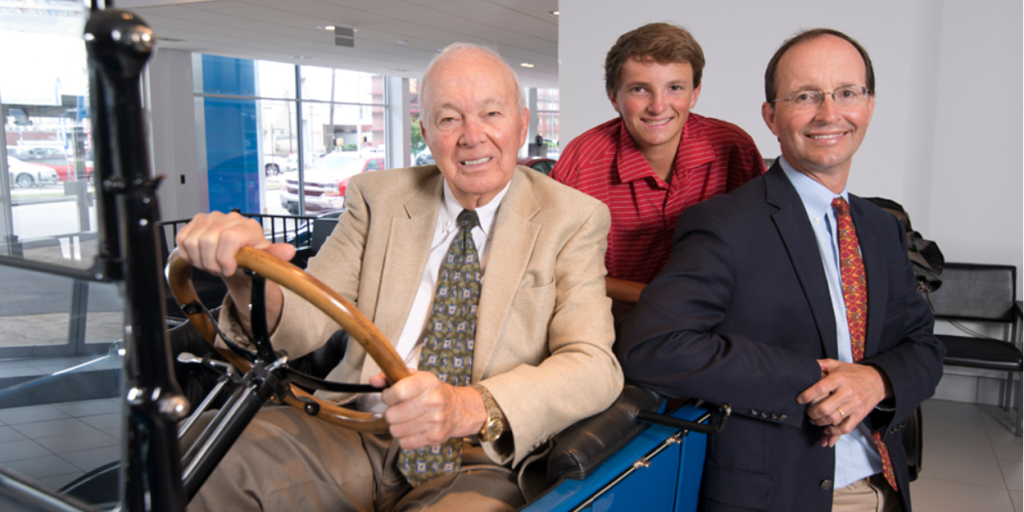Sloss Furnaces has been one of Birmingham’s most visible landmarks for generations. Situated along First Avenue North, immediately east of downtown, the towering furnaces and stacks produced pig iron from 1882 until 1971.
The Sloss complex was designated as a National Historic Landmark in 1981, beginning its evolution as a tourist attraction and interpretive industrial museum. It houses a nationally recognized metal arts program and is a perennially popular venue for concerts, festivals and other events.

For all of that, local enthusiasm about Sloss reached a new high on June 21. That evening, a crowd of several hundred gathered to await the setting of the sun and the ceremonial flipping of a switch to “Light Up Sloss.” Organized by volunteers for the nonprofit Sloss Furnaces Foundation – and supported by a slate of sponsors that includes the Alabama Power Foundation – the project installed energy-efficient lighting that will offer a permanent nighttime display featuring Sloss’ furnaces, smokestacks and iconic water tower.
“This is a great night,” said Cathy Sloss Jones, a Birmingham business and civic leader and the great-great-granddaughter of the man responsible for the furnaces, James Withers Sloss. “It’s great to see the city recognize the importance of this historical site in a way that projects the role it can play in the future.”
While not officially a “founder” of Birmingham, James Withers Sloss was instrumental in making the city’s founding and early survival possible. An influential industrialist and railroad owner from north Alabama – one historian described him as among “the chief proponents of Alabama’s industrial development” after the Civil War – Sloss was a visionary who not only saw the possibilities of a city founded on ironmaking and railroads, but acted on it.
That history gives resonance to the addition of the lights at Sloss Furnaces, said Lee Sentell, director of the Alabama Tourism Department. Sentell pointed out that Sloss has long been included in his department’s advertising and promotional materials, but he now looks forward to including a photograph featuring the new lights in the state’s next vacation guide.
“It’s a dramatic exclamation point,” Sentell said. “Sloss Furnaces is already a great attraction for Birmingham, but the lights will raise the curiosity factor among visitors, promote greater awareness and understanding of why this facility and the iron and steel industry was so important.”
At the pre-ceremony reception, a sense of anticipation was apparent. Longtime Birmingham resident Morris Newman shared his excitement, calling the new lights for Sloss “yet another indicator that Birmingham is going beyond where it has ever been before.”
“It feels like waiting for fireworks on the Fourth of July,” Newman said. “It speaks to our continued progress. What’s happening in Birmingham right now is really astonishing, and this underscores that.”
In his remarks prior to the lighting, Sloss Furnaces Foundation President Steve Reider alluded to the darker aspects of Birmingham’s history. He noted that, like other major local industries, Sloss long maintained a segregated workforce and, that later, there were sometimes-violent battles over unionization – all part of the story of the company and the city.
“In switching on these lights, we want to shine a light on all of these stories,” said Reider. “In doing so, we’re helping to light the way for continuing to move our city forward.”
Birmingham Mayor Randall Woodfin invited members of the Birmingham City Council – along with Jefferson County Commissioner Steve Ammons and Birmingham Board of Education member Mary Boehm – to join him at the podium. Given the honor of turning on the lights, Woodfin invited children in attendance to help him flip the switch.
“This evening is about the future,” Woodfin said. “For years, the furnaces at Sloss lit up the night sky in Birmingham. But these lights are going to shine even brighter. And they’re going to keep shining.”
(Courtesy of Alabama NewsCenter)
















